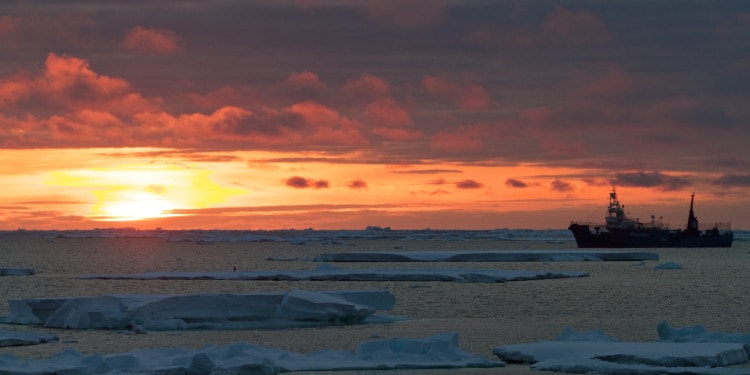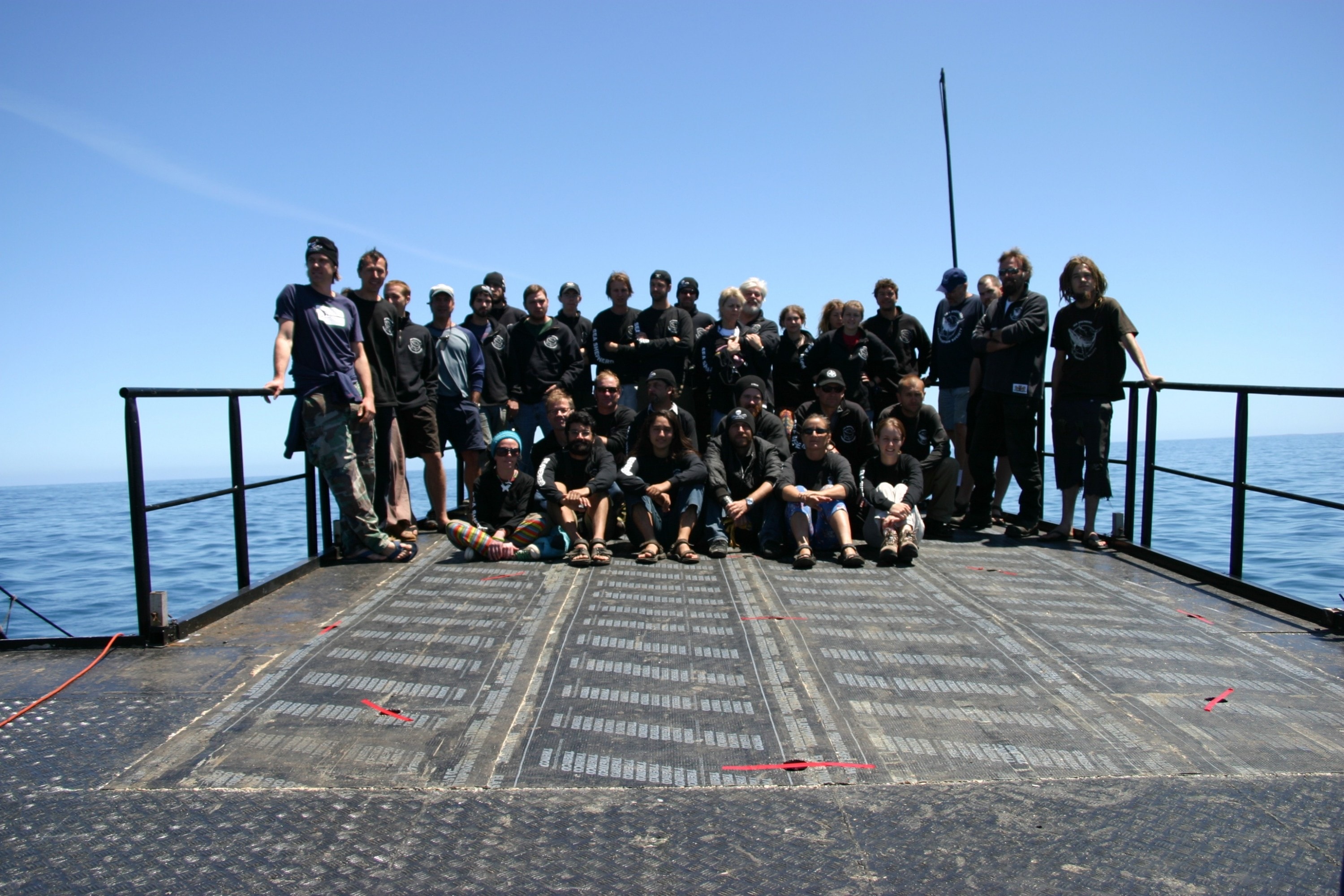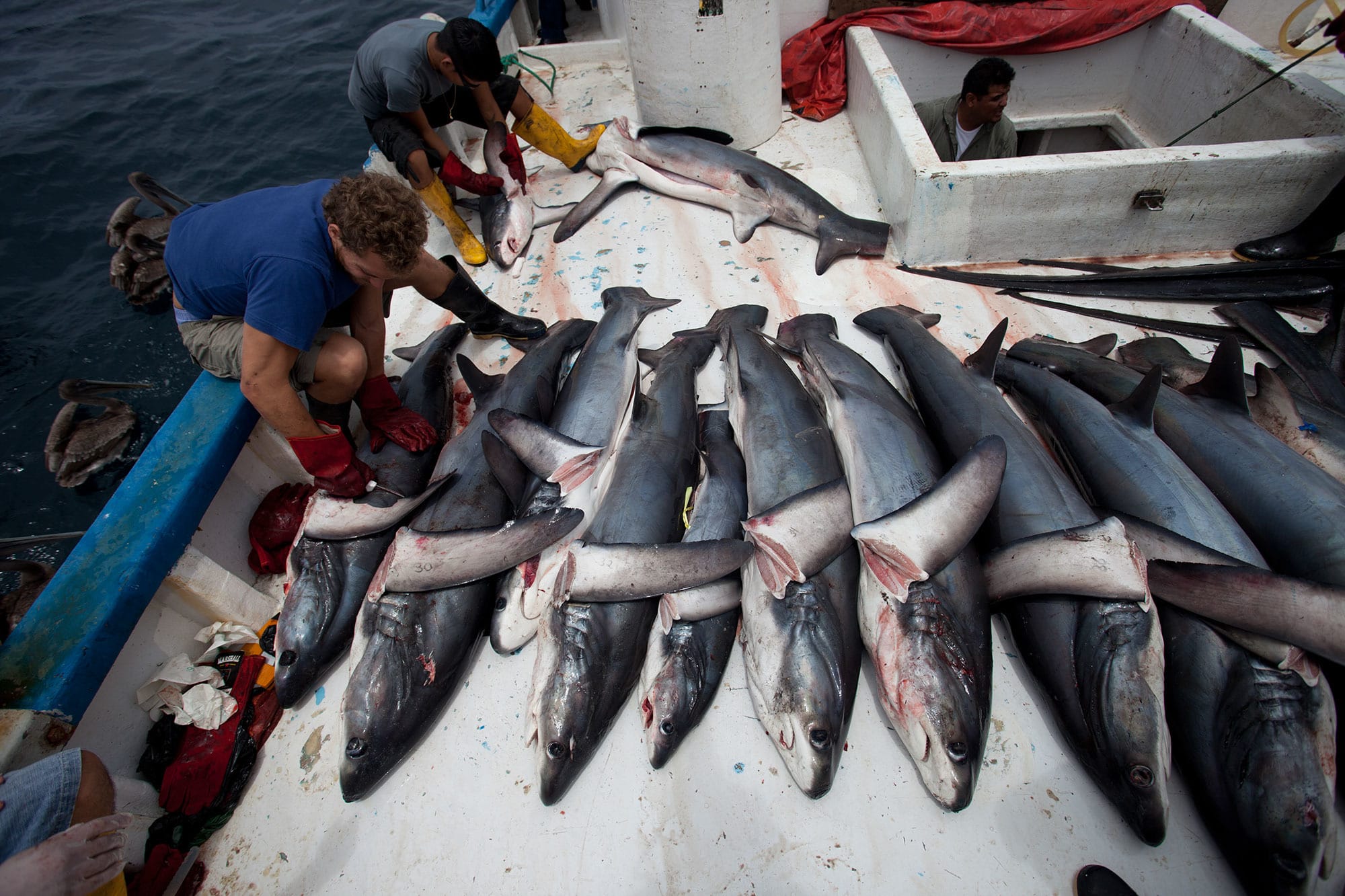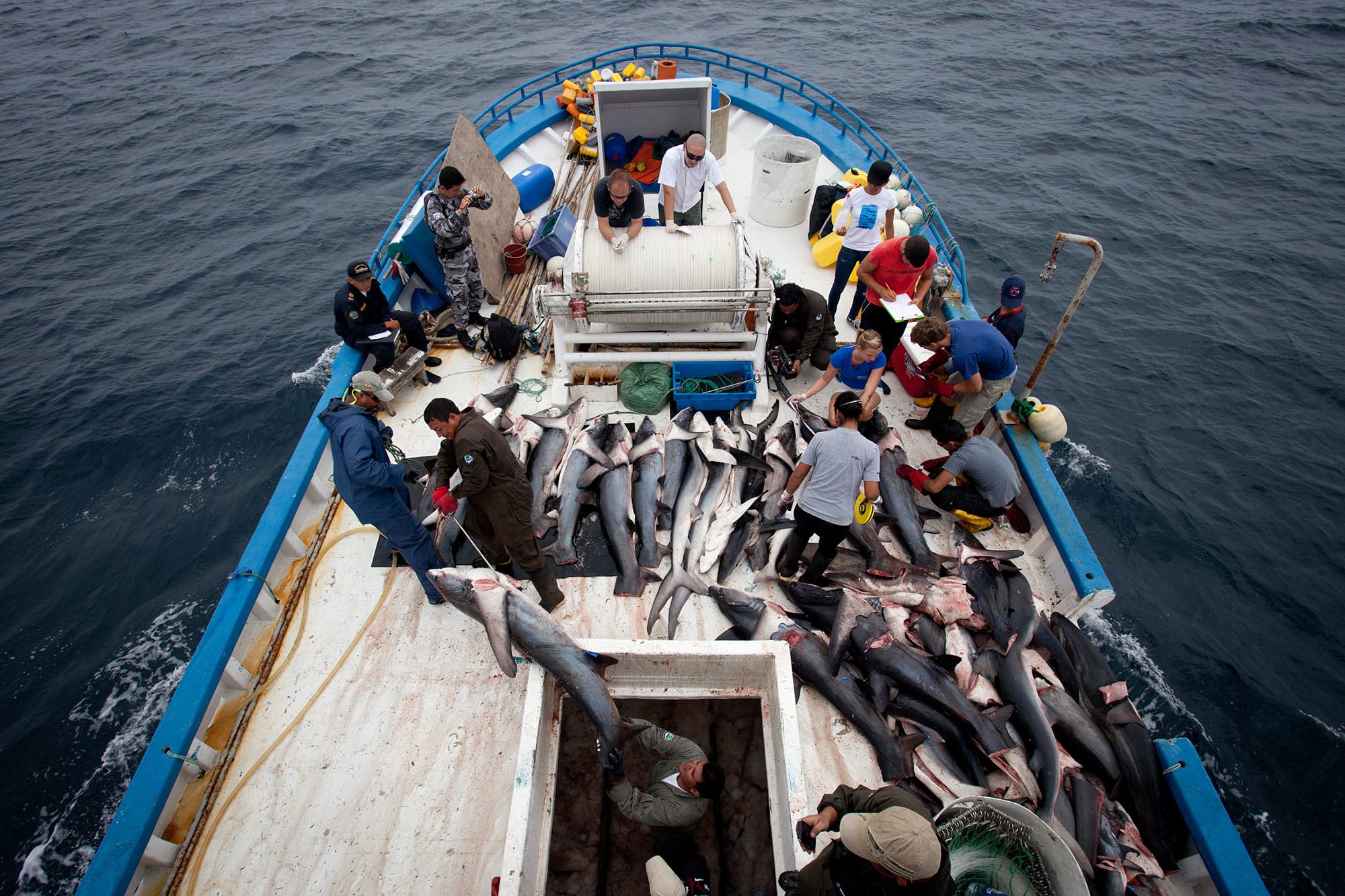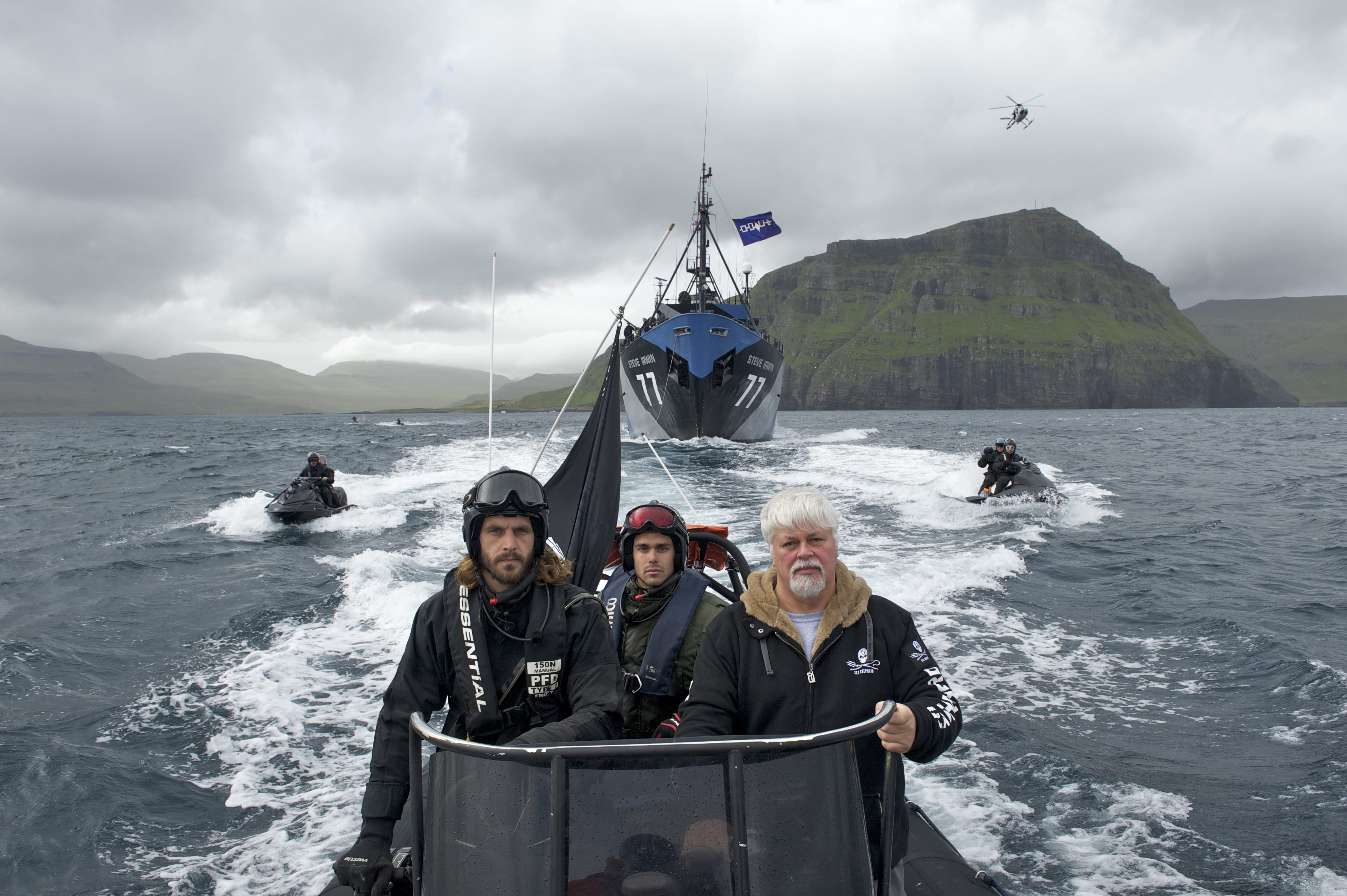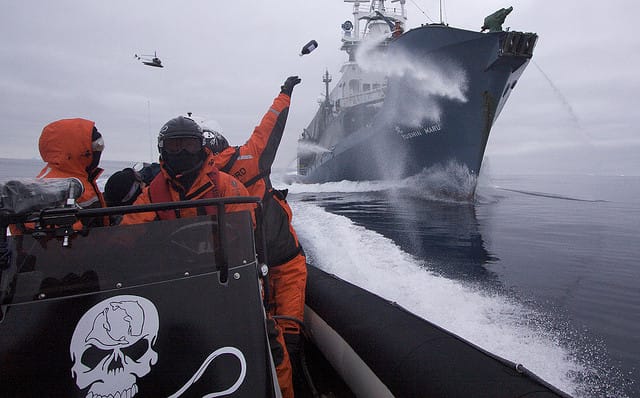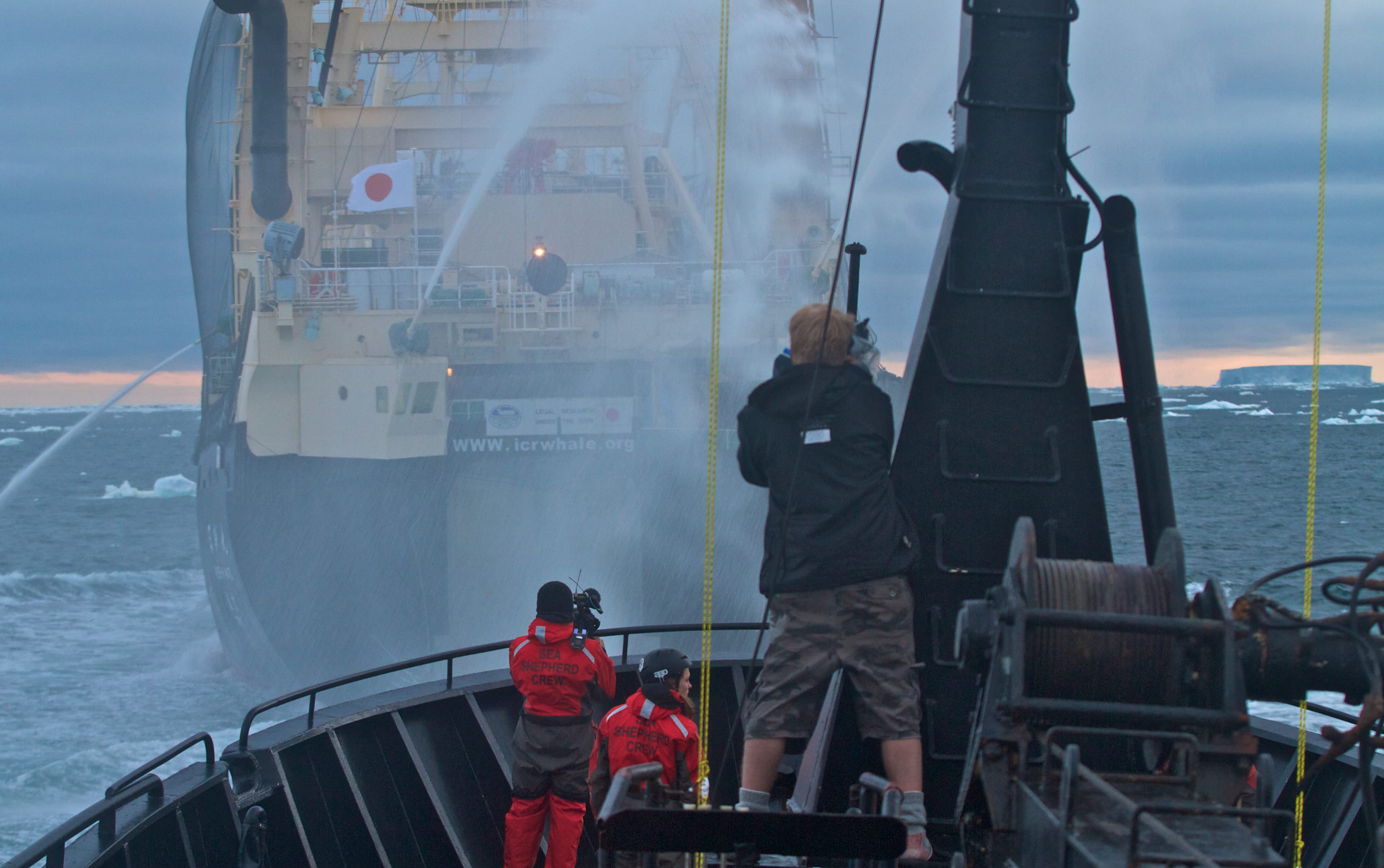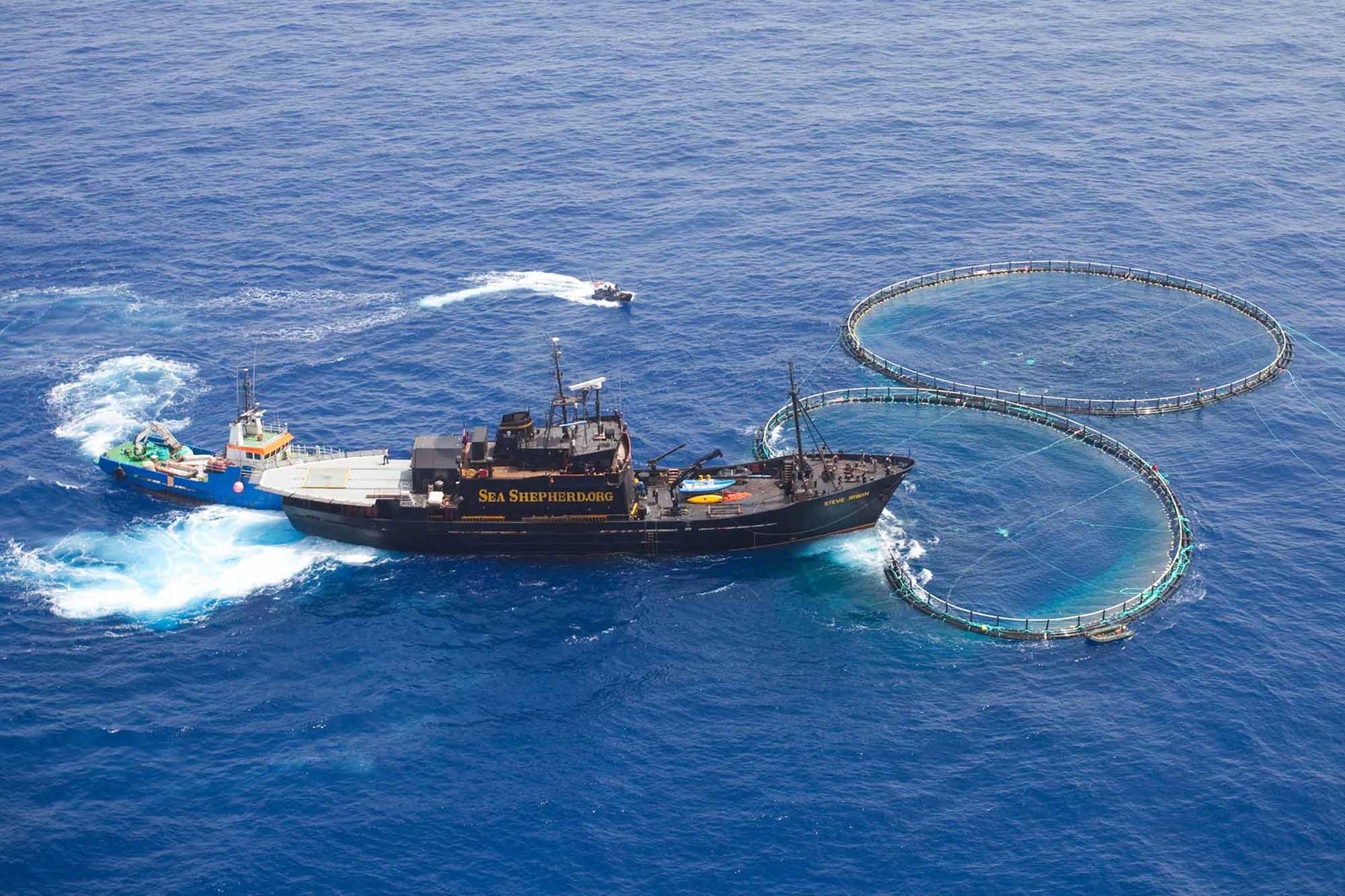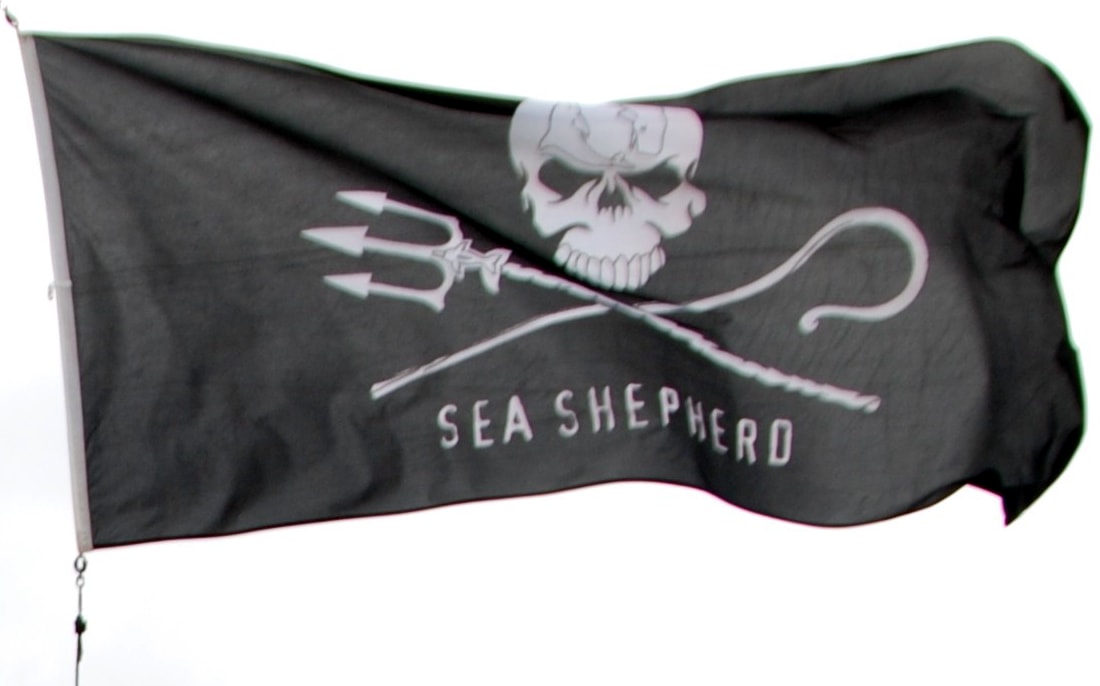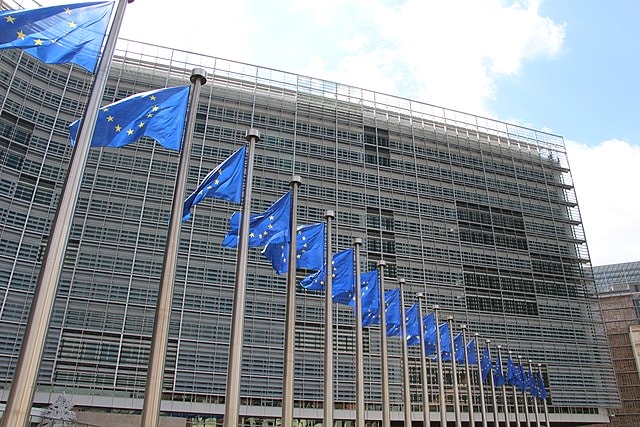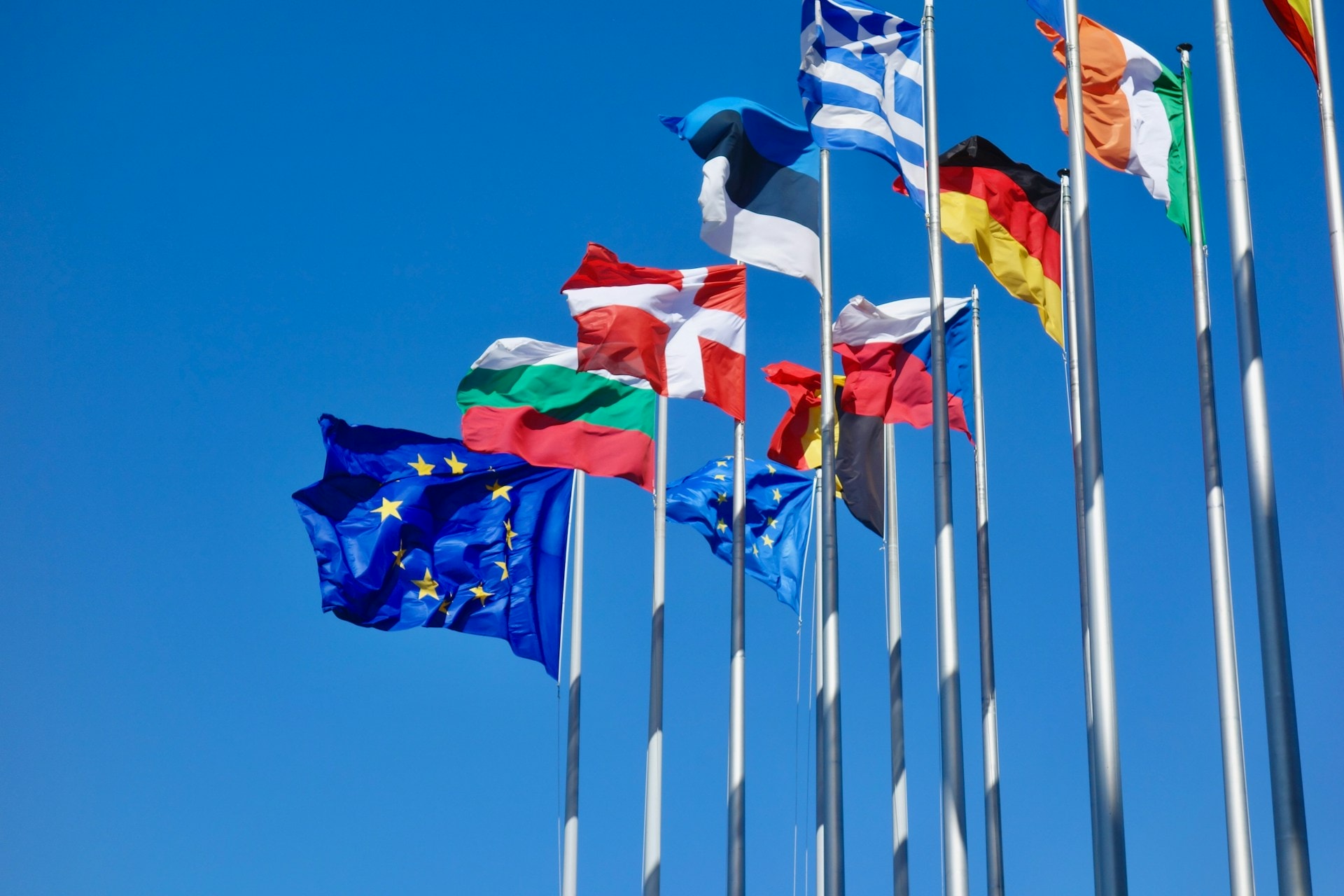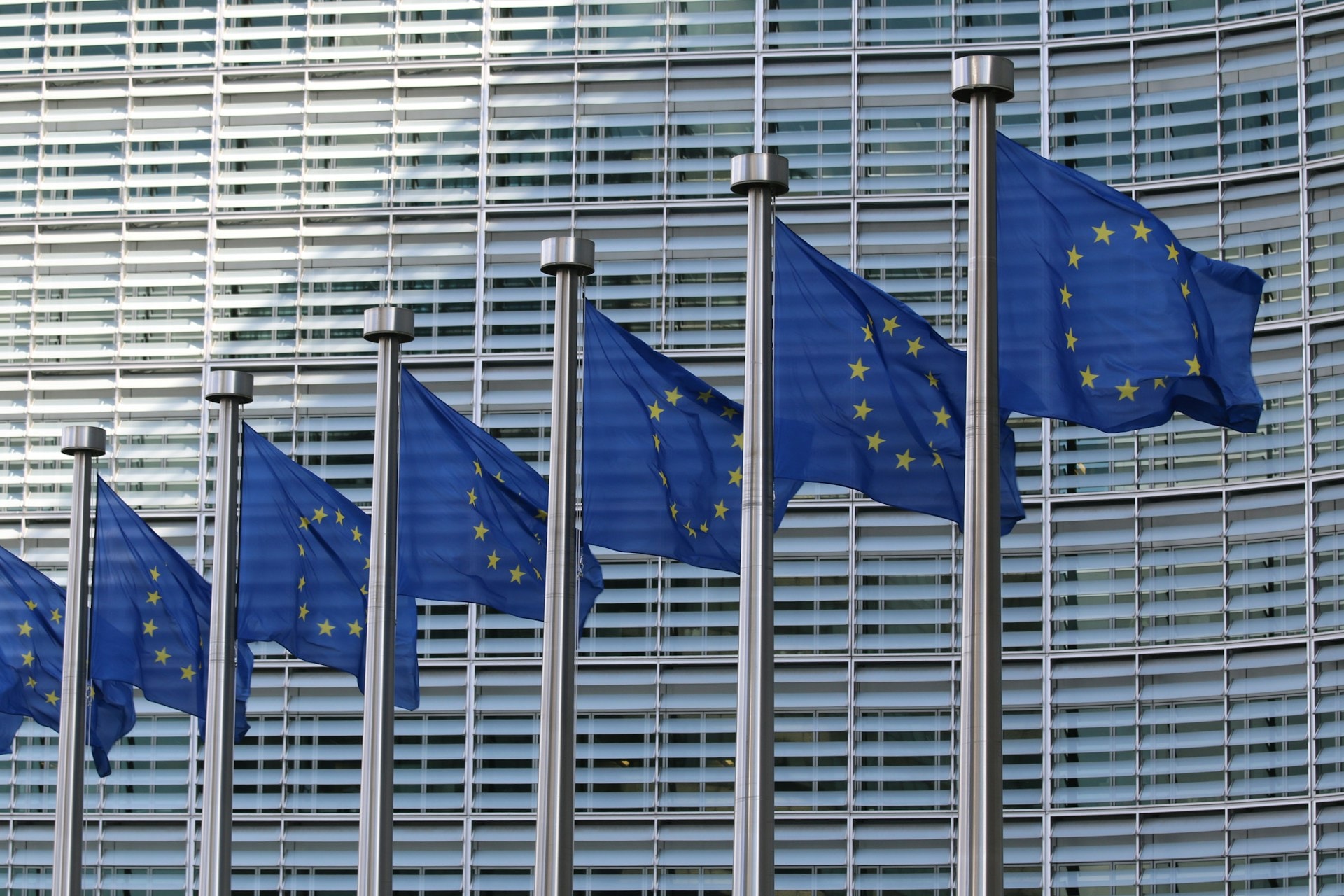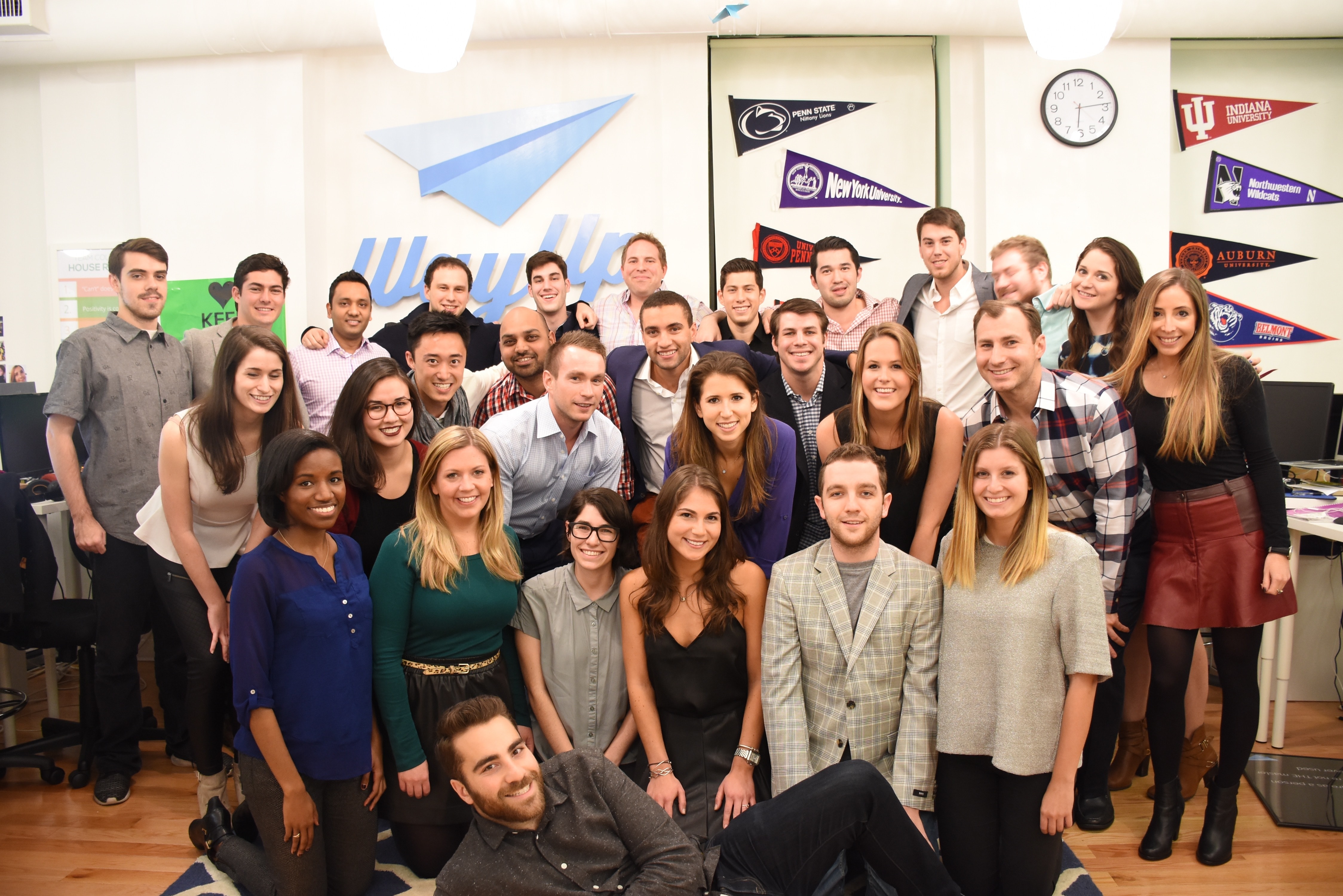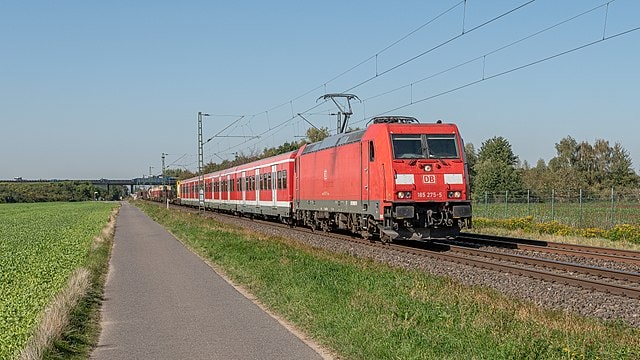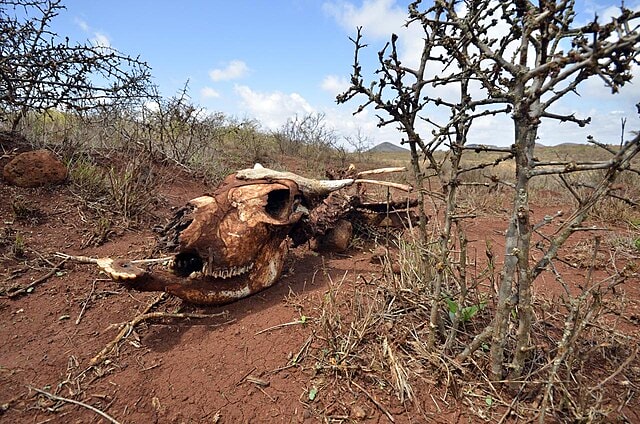Editor’s Note: This is Part II of an interview series collaboration between Michele Sciurba, Sarah Schuster and Captain Paul Watson. Paul Watson was one of the founding members of Greenpeace and when he left, he founded the Sea Shepherd Conservation Society dedicated to marine conservation and environmental activism. To read Part I, click here.
We met Captain Paul Watson and his wife Yana Rusinovich on the occasion of the United Nations Climate Change Conference in Paris only one week after the Paris attacks that aimed to kill as many innocent victims as possible. This tragic event was one issue weighing heavily on our minds. The dying of our oceans and the extinction of numerous animal and plant species was another: 50 percent of currently existing species will disappear from our planet by the end of the century if we don’t change the course of our actions. It was impressive to see how Paul Watson kept his spirit up with a great sense of humor, a positive attitude and a highly empathetic approach. “You can take down an individual, you can take down an organization, but you can’t destroy a movement,” he said, knowing that we all must work together to solve a problem that is certainly bigger than all of us. Here are highlights of our conversation.
PART TWO
AN INSIGHT INTO SEA SHEPHERD, ILLEGAL FISHING AND POETRY
Sarah Schuster: How do you recruit people for Sea Shepherd activities?
Paul Watson: Volunteers. We have probably 5,000 people on the list now. The difficult part is having to say no to so many people only because there are too many wanting to go. We have a file and we contact people based on where the ship is and based on their skills. But, we try to make it possible for everybody to participate no matter what their background. I’ve always felt that we are going to solve this problem with the involvement of everyone. When I was younger, in the 1960’s it was possible to go to sea and get experience. The problem with the world today is nobody can do that because to get on any ship you have to have experience.
In fact, a lot of people have come on as crew members and have gone on for nautical careers.
Michele Sciurba: What kind of experience do you need to be on a ship like Sea Shepherd or Brigitte Bardot?
PW: We have experienced officers. Others don’t have to have experience. We teach them when they come on with a training schedule and program. If somebody signs on they are either in the deck department, the galley department, the engine department or in the media department. We are always accused of having an immature crew but we have never lost anybody. Back in 1911, Ernest Shackleton was accused in an editorial in the London Times of having a bunch of amateurs on his crew and he said, “I don’t need professionals. I need people with a passion to get where I need to go. Professionals just get in the way.” I actually found that to be true. The more professional the crew, the bigger the whiners they are. There is no imagination. Especially down in the Southern Ocean I had so many problems with professionals who said, “We can’t get through that ice.” It’s always the professionals who say what you can’t do. I want people who say, “Yes, let’s go and try it. Let’s do it.”
SS: So you’re searching for hardworking people who can perform.
PW: Yes, you get people from all over who just get addicted to it and want to do it forever. We’ve had people on board of the ships now for six years at a time. It’s a good comradeship.
MS: How do you select your operations?
PW: We only intervene against illegal activities. We look at all the different illegal activities that are happening and where we can intervene. Is it feasible? Do we have the laws? Can we actually achieve anything? Like our campaign Operation Icefish. Six of these poachers were in the Southern Ocean. The Australian government was criticizing us. When we were going to confiscate the nets, they threatened to charge us with illegal fishing. Are we supposed to leave the nets there, you know?
If the ocean dies, we die.
In the Photo: The crew poses for a group photo. Photo Credit: Sea Shepherd Conservation Society
MS: I’m quite familiar with São Tomé and Príncipe. There was a specific story we followed, the Sea Shepherd chased a boat for 110 days.
PW: Off the Banzare Coast of Antarctica the poaching vesse,l Thunder, dropped their gill net. Our ship, the Sam Simon, confiscated the net, it was 72 kilometers. Just off São Tomé the captain of the Thunder sank his boat.
MS: This was unbelievable. You rescued those people out of the water.
PW: I was turning the captain over to the São Tomé Coastguard. He had nowhere to go. These boats usually change their name and flag, sneak in to unload their illegal cargo and then they go out. But as long as we were on his tail he couldn’t sneak into any port. So after 110 days which is the longest maritime pursuit of a poacher in history, he just decided to sink the boat in order to destroy the evidence. Three of our guys went on board and grabbed the computers, cellphones, charts and the logbooks.
SS: While it was sinking?
PW: Yes, we couldn’t stop the boat from sinking. Our guys went into the freezer and got samples of the fish to get all the evidence. Then we took the 42 crew members and delivered them to the authorities. We also had the support of the Nigerian Air Force. They were very helpful.
MS: This is an incredible story.
PW: Yeah, it was effective. But two of the boats snuck into Cape Verde. We have a boat called the Jairo Mora Sandoval that was there doing conservation work. When Peter Hammarstedt, who was captain on the Bob Barker, landed in Cape Verde, he discovered them. “There’s the two! Those are the two boats that were in Antarctica,” he said. He went to the Cape Verde authorities and had them arrested. Meanwhile the Viking was arrested in Malaysia. Thailand arrested the Kunlun. But the Kunlun and the Viking are now back in the Southern Ocean. Next month the Steve Irwin heads down to get after them again.
The whole object was to clean up the Southern Ocean. That’s what Sea Shepherd does. For 15 years we’ve been working in partnership with the Ecuadorian Federal Police and the Galapagos Park Rangers to stop poaching there. That’s an ongoing program. We set up a 1 million dollar AIS system and it costs us a quarter of a million euros a year to maintain that. We provide them with patrol boats and equipment. We also have a K9-Unit. We buy the dogs in the Netherlands and train them to patrol the airports and the ports. When they retire we find homes for the dogs.
We recently had an operation called mare nostrum that was cleaning up the ghost nets on the Southern Coast of France. We did that all summer and pulled kilometers worth of ghost nets out of the water.
We’ve been opposing the killing of dolphins in Taiji, Japan, with our operation Infinite Patience. Every day from September 1 – March 30, we have volunteers documenting and recording everything that is happening. We can’t intervene because it’s in Japan; but we can certainly keep it in everybody’s view.
THE LAST 10 PERCENT OF FISH IN THE SEA
MS: Illegal fishing goods get sold even though governments know it’s illegal fishing. Why is it so difficult to block these illegal trade activities?
PW: They don’t want to. Forty percent of all the fish sold in restaurants and in stores is illegal.
SS: How is this trading possible on a daily basis?
PW: For instance, there is a boat called, Thunder. The company that owns that boat got a 3.2 million euro subsidy from the European Union. We are subsidizing illegal activities. There’s about $67 billion dollars a year that is being used to subsidize industrialized fishing.
What happened in the twenty-first century? We removed 90 percent of the fish from the ocean. I was raised in a fishing village in Eastern Canada. I’ve seen the depletion taking place. To get that last 10 percent, you need highly industrialized equipment. To do that, you need massive government subsidies.
I just wrote up a booklet for the Climate Change Conference in Paris – solutions that nobody wants to hear. Solution number one: Revitalize bio-diversity in the ocean. Shut down all industrialized fishing operations for forty years. Let the ocean repair itself. They are not going to do it but that is what needs to be done. Stop all subsidies to industrialized fishing. If you want to fish, go out there in your little boat and catch your fish.
But the fact is, we can no longer afford to do this. Yana and I were at a fundraiser for other environmental groups in Cannes at the Cannes Film Festival. We got invited by a director from Brazil to come to this fundraiser for environmental groups and Chilean Sea Bass was on the table. They were serving an endangered species. Yana and I had vegetarian dishes. A woman across the table said, “Why are you having that? This is delicious.” I said, “well, because it’s an endangered species and we just spent all this last year fighting. ” And she says, “But it’s really good. You should try it.” I said “no, the problem is that fish are disappearing.” And she says, “Then you should taste it while we have it.” That’s the attitude we have to deal with all the time.
SS: Are there further solutions in your booklet?
PW: The other solution is to change to a plant based diet. We kill 65 billion animals a year which produce more greenhouse gases than the entire transportation industry. Forty percent of all the fish taken from the ocean is fed to chickens and pigs and domestic house cats. 2.8 million tons go to cats alone. So cats are eating more fish than harp seals and chickens are eating more fish than albatrosses. We are literally eating the ocean alive.
There is one thing I say over and over again. If the ocean dies, we die. We will not live on this planet with a dead ocean and the ocean is dying. Since 1950 we have lost 40 percent of our Phytoplankton population which provides 50 percent or more of the oxygen we breathe.
Nobody even thinks about that.
Forty percent of the Phytoplankton which provides 50 percent of our oxygen is a serious situation that nobody is even aware. But why do we lose 40 percent of the Phytoplankton? Because we kill 90 percent of the whales. And the whales are the farmers of the ocean. The whales keep the Phytoplankton healthy. They provide the nutrients that are needed. Everyday, one blue whale drops three tons of whale shit in the ocean which is nitrogen and phosphors and iron.
MS: And nobody needs to eat whale for nutrition.
PW: Right, but if you want to have fish you need whales. For millions of years the ocean has operated perfectly as a life support system for the planet. Interdependence of bio-diversity of species working perfectly. We screwed the whole thing up. Then we turn around and blame everything: We’re gonna kill the seals, they’re eating all our fish. We gotta kill the dolphins for eating our fish.
But if you want more fish you need more seals. Trying to get that across to fishermen is really difficult. I tried to explain it to them. For instance, take a look at the harp seal. The harp seal primarily eats capelin, herring and mackerel. Those three fish primarily eat young cod. You lower the harp seal population you increase capelin, mackerel and herring population, you decrease cod populations. All these things are working perfectly.
The Canadian government only sees fish, people, seals… but that eco system has 938 species working interdependently with each other. The fishing village that I lived in has completely changed. We had the largest lobster fishing village in the world: St. Andrew, New Brunswick. The one thing you didn’t eat: mussels. Nobody ate mussels. Shit grows on them, look how dirty and everything. (laughs). That’s what you get now. Adaptation to diminishment, you know. It’s like water, 1965. The very idea that you are going to drink water out of plastic bottles and pay more than gasoline was ridiculous. But now that is where we are.
Our conservation environmental movement is not a movement to save the planet. Our movement is a movement to save ourselves from ourselves.
 In the Photo: Captain Paul Watson stands on the bow of the M/Y Steve Irwin for some adventure during a storm in Antarctica (Photo: Eric Cheng / Sea Shepherd Conservation Society)
In the Photo: Captain Paul Watson stands on the bow of the M/Y Steve Irwin for some adventure during a storm in Antarctica (Photo: Eric Cheng / Sea Shepherd Conservation Society)
WINNING OR LOSING?
It is not important if activists win or lose. It is important whether the human species survives or not.
MS: We are currently in Paris. You live in France and you are expecting a child. What do you think about the recent Paris attacks and what do you think is going to happen?
PW: The world is becoming divided, again. It is flags, religion, soldiers, divisions and so on. One day after the attack, France bombed ISIS headquarters in Syria. Why? How did they know where the headquarters were? If they knew, why didn’t they know it last week or two weeks before? They have been bombing Syria for months and all of the sudden on the day of this tragedy, they bomb the headquarters.
SS: While ISIS misuses religion as a false premise for their actions and big parts of the public believe it …
PW: Yes, comparing ISIS to Muslims is like saying the KKK is Christian.
MS: That is a good comparison. It is also strange that ISIS has the logistics to sell crude oil and that there are buyers for that. They make a lot of money everyday for financing weapons while there is no production of weapons in the Middle East. Someone must deliver the weapons to them.
PW: It is all business. Within three or four days of the Paris attack, the CEO of McDonnell Douglas was saying how shares had increased and how the environment for future investments is very optimistic .
MS: For shareholder value.
PW: If America, France or Sweden weren’t selling weapons to them they wouldn’t have anything to fight with. Sweden is one of the biggest arm dealers in the world.
Yana Rusinovich: France entered their army in Syria in February. What happened those last days was an answer to France.
PW: It’s a retaliation, for a retaliation, for a retaliation, for a retaliation. The Canadian Prime Minister, Justin Trudeau, actually said that he was going to pull the Canadian forces out of Syria. A couple of days ago Obama was trying to get them back in there. Trudeau refused. Somebody has got to stop it. Canada has stopped it. All you do when you bomb some place is creating more enemies. If somebody loses their kids, they are going to become very angry. If somebody loses their parents, they become angry. That is a future terrorist right there. And what is terrorism? When people say I’m an eco-terrorist, I say, “no, I’m not an eco-terrorist. I don’t work for Monsanto.”
SS: Were there specific moments where you thought hope is gone and the eco-activists will lose the fight at the end of the day?
PW: First of all, it is not important if activists win or lose. It is important whether the human species survives or not. I learned a lesson when I was working with the American Indian Movement. We were occupying Wounded Knee in South Dakota back in 1973. I was a medic for the American Indian Movement. It was a real combat. It was a battle. They were shooting at us. What the Lakota expressed the best was: you don’t do what you do and worry about whether you are going to win or lose. You do what you do because it is the right thing to do and, therefore, it is the only thing to do. You can’t be concerned about the results. You can’t be concerned about the odds against you. You just do what you have to do. They sum it all up with the words »hoka hey« that can be translated as »It is a good day to die«, which means you have to stand your ground for what you believe in. I’m neither optimistic nor pessimistic. I do know that there are laws of nature. Those laws will take care of the situation if we don’t voluntarily solve the problem.
People say we are in the sixth major extinction event in world history. What is an extinction event? Not the end of the planet. It’s maybe the end of humanity but the earth will recover from the major extinction in about 18 to 20 million years and be a beautiful place again. You wouldn’t even know we were here at the time. These problems will be solved one way or the other. Our conservation environmental movement is not a movement to save the planet. Our movement is a movement to save ourselves from ourselves. That is what it is and, therefore, that is what we have to focus on. I never get depressed or pessimistic about anything just because I go with the premise that humanity is ecologically insane and that we will hopefully find a solution to that insanity.
SS: At what point did you feel that you have to do what you do?
PW: I started rescuing beavers when I was ten and have just been doing this all my life. I never really actually sat down and said, “Well, there is a turning point of having to do this or having to do that.” I’ve been pretty much consistently doing what I’m doing for fifty years. There was no decision to be made.
MS: Nearly one billion people are living in hunger and without clean water. Nobody seems to care. The consensus seems to be that this isn’t a problem.
PW: It will get worse. Lack of empathy will continue to increase. The human population is increasing and people don’t really care because they are just numbers.
MS: If people have no empathy for people, how will people have empathy for whales?
PW: Well, I don’t expect them to. People are retreating into fantasies. Religion is a fantasy; video games are a fantasy. There are more subscribers to War Craft than there are active environmentalists in the world. Most people live their lives without even being here.
For instance, Yana and I are having a child and people say, “Well, if you are concerned about overpopulation, why do you have a child?” Because the problem is not with people having children. The problem is with people having children without caring about them. I think one of the keys to being a successful parent is one of support. Encourage them, guide them, but don’t teach them anything. We teach them our values, but our values are very, very destructive. Any six year old kid is probably more intelligent in many ways than adults. At six years old, I didn’t know anything about dinosaurs but I would say, “I don’t think these dinosaurs were reptiles. I think they were birds, definitely birds.” Of course everybody told me I didn’t know what I was talking about. Two generations later, it turned out I was right. How did I know that? Intuition. It just seemed right. Another time I cut up a map of the world and put all the continents together saying, “I think this was one big continent at one point in time. Look, it’s like a puzzle. It all fits together.” “No, that’s stupid. It’s ridiculous,” teachers would say. And then it turned out I was right.
SS: Do you think the school system has something to do with it?
PW: Back in the 1970’s, we gave a talk at an Indian reservation in the Queen Charlotte Islands, a Haida Indian Reserve. One day we spoke to three different classes: kindergarten, middle school and seniors. In kindergarten we asked, “how many people here speak the Haida language?” Everyone did. They were six years old. “How many people here know anything about whales?” We didn’t have to teach them anything. They just told us about whales. In middle school, half of them spoke the language and only half of them cared about whales. By the time we got to the seniors, nobody spoke a word of Haida and nobody could give a damn about whales. That is our school system. We take these beautiful kids and turn them into uncaring idiots.
MS: This is also happening in universities. We create highly specialized idiots that are unable to see the bigger picture. People nowadays get upset when you are capable of doing ten different things instead of just one. You are, for instance, captain of a ship, an eco-activist with in-depth knowledge about biology and so on and so on. In former times, it was usual that people aimed for general education.
PW: I always say, I’m just a poet.
SS: A poet?
PW: When I look at everything I do, the thing that I take the most enjoyment out of is writing poetry, so I say I am a poet.
SS: A poem is a powerful form. A concise description of a phenomena often tells you more than an abstract idea.
PW: I do the sailing, lecturing, writing, public speaking and I just did a book with 160 verses on whales, whaling and saving whales. Poetry is the part that keeps me sort of centered on everything, really.
Photo Credit: Flickr/John
You can take down an individual, you can take down an organization, but you can’t destroy a movement.
Part III will be out 27 January 2016. Don’t miss it!
_ _


